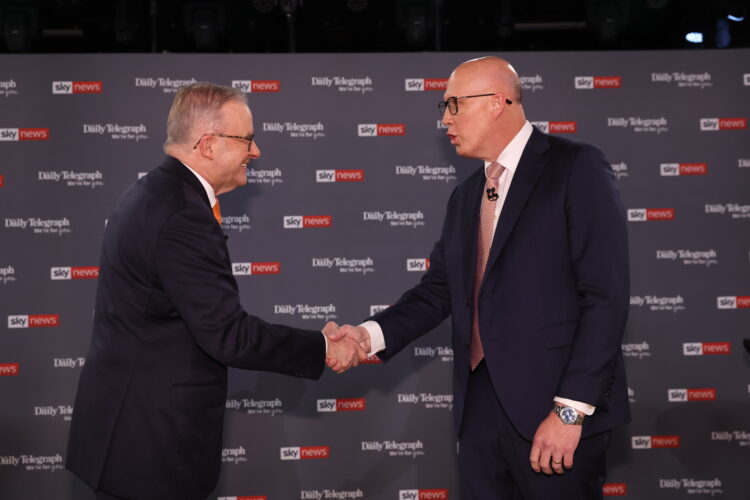Greg Jericho
Chief Economist
As Amy and I spend the morning looking through our employment contracts to see if there is a clause for “recovering lost hour of our life” for those of you who did not see it, Amy has some nice clips below to check out.
Overall, it was a debate which probably should worry the Dutton camp because he did about as well as he could, and the audience still said he lost.
I thought Dutton did fine, so long as you don’t mind lies.
He suggested the budget was in balance when the ALP took over in 2022, which is wrong.
He suggested bulk billing numbers were not falling when the ALP took over, which is wrong.
He suggested international students are causing house prices and rents to rise, which is wrong.
He suggested Jim Chalmers is wanting interest rates to fall because he is panicking about a recession that seems to be the ALP’s fault, which is wrong.
He suggested the LNP after the 2013 election did not cut health spending, which is wrong.
And well, you get the idea.
He had some good moments such as when Albanese did his schtick of holding up a Medicare card and saying that’s all you need by asking the questioner if she has to pay when she sees a GP (she did).
But missed some things. Pretty much his campaign no seems to be petrol and gas and trying to remind people of The Voice.
He didn’t really go big on gas, which was odd given the modelling for the gas reservation policy was released straight after, but even his petrol excise policy already seems odd because he couldn’t really explain why, if it is so good, he is only going to do it for a year. He suggested something about Labor spending money madly, which makes no sense given the excise cut costs roughly the same as the tax cut and Dutton has promised to get rid of those so what’s the issue?
For Albanese it was Albanese as we known him. He was clunky at times, when he tried to get an answer on petrol excise into a line about working from home.
He really missed an opportunity to paint Dutton as reckless over his talk of a recession.
The sad part was all the bipartisanship.
Both love AUKUS despite Trump, both are very worried about Gaza but also not doing a damn thing. Both went out of their way to praise a woman who seemed to think migrants were the cause of all problems with housing (apparently foreign students are buying lots of houses – 2 or 3 and leaving them empty). Both are happy to say foreign investors in housing are bad, but nothing to say about local investors (or the tax regimes that benefit them).
Both probably used this as practice for next week’s debate on ABC which will be watched by rather more people, but still nowhere near enough to change any votes of a size that will matter.


Loading form…